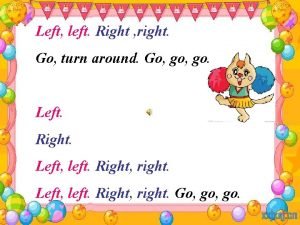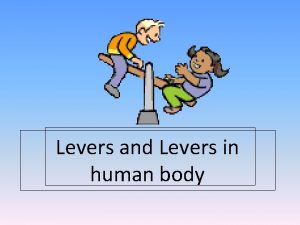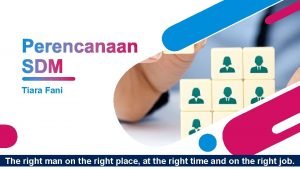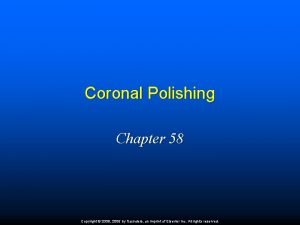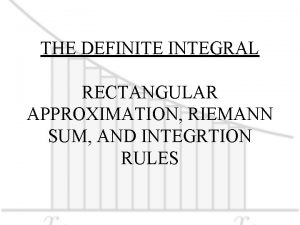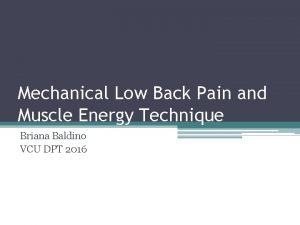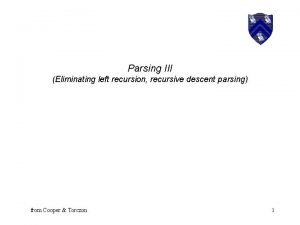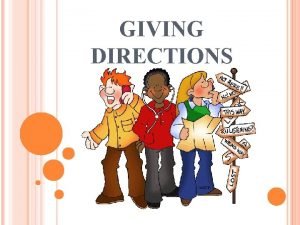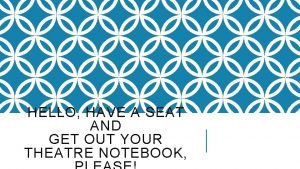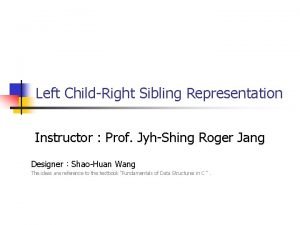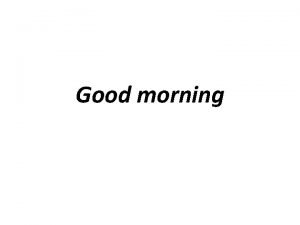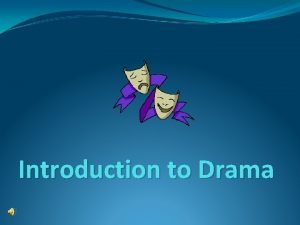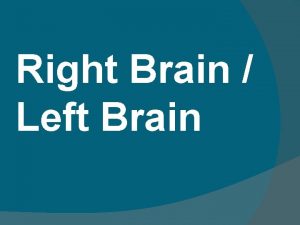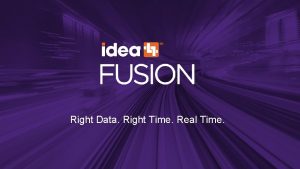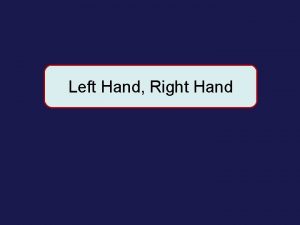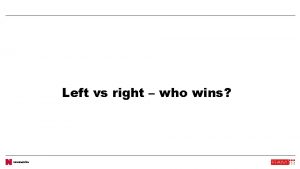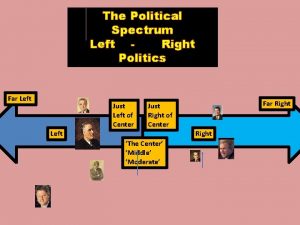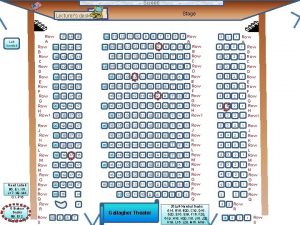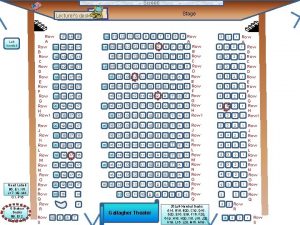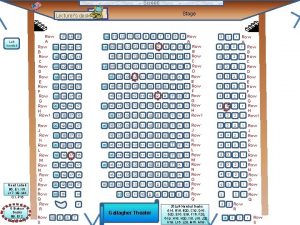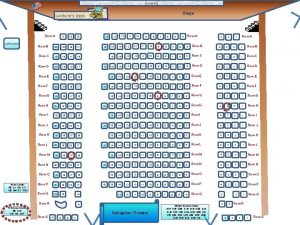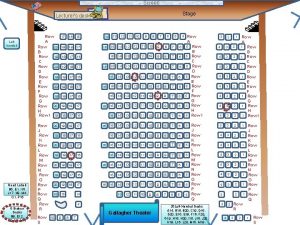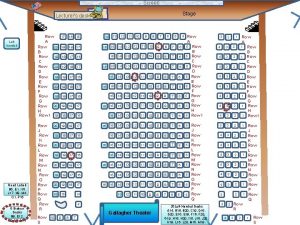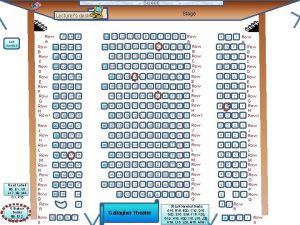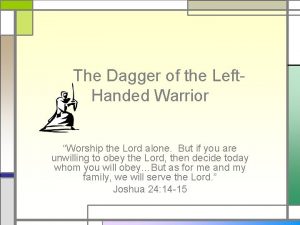Left Handed Medical Professionals in a Right Handed





















- Slides: 21

Left Handed Medical Professionals, in a Right Handed World: An ergonomic challenge Author: Apurva Lunia (2 nd Prof. M. B. B. S. ) Guide: Dr. D. S. Choudhary, M. B. B. S. , M. S. Anatomy Research Supported by: Indian Council of Medical Research’s Short Term Studentship-2014

10% of human !)% population i. e. 700 million people


A University College, London study (1990) denoted overall 6. 2% medical school students were left-handed

“Always stand on the right side of the patient for clinical examination” In this world of right-handed medical practices, equipment, tools, procedure, workstations etc. where do the left-handed medical professionals go?

Objectives of the Study: � To study the existing/prevailing knowledge, attitude and practices regarding right handedness and left handedness. � To Study the experiences of left handed individuals (doctors, dentists, nurses and physiotherapists) in terms of surgical equipments, routine medical procedures, protocols etc. � To identify and collate the stresses faced by left-handed professionals, in medical and paramedical fields. � To conscientise teachers, students and medical professional regarding the problems and needs of left-handers. � To recognize the need for development of surgical instruments, accessories, work stations, protocols etc.

Research Methodology: Locale of the study- The study was conducted on medical practitioners, medical teachers and medical students from Jaipur city � Sample size and its selection -Sample comprised of 25 subjects in total (N=25). The purposive sampling technique was used. �

3. Tools- Four tools were formulated: • Questionnaire cum checklist for i. Medical Practitioners ii. Medical Teachers iii. Medical Students • Case study method 4. Procedure of data collection The data was collected in three phases, Phase 1: Distribution of Questionnaire. Phase 2: Personal Interview/ Discussions. Phase 3: Observations.

Observations: You Consider youself to be Left Handed 75% 15% 25% 10% Born Left Handed, now Ambidextrous Medical Professionals Born Left handed, now Ambidextrous Medical Students

Have you received/ given any guidance, support in form of left handed tools, and information thereof, during your course of study/training/professional practise? 5% 85% 15% 3% 7% Not received any support Medical Doctors, Nurses, Physiotherapists Medical Teachers Medical Students (U. G. / P. G. )

Have you faced any social stigma, compelled to change hand preferences by family members, teachers, peers etc. ? . . . 47% 53% 33% 20% No Yes: Medical professionals Yes: Medical Students

Have you ever felt inconvenience/difficulty using medical equipment/tools/ procedures during the course of you training? Medical Professionals 16% No, adopted/opted using right hand 35% Yes 64% Medical Teachers 27% Medical Students 22%

Should there be provision of basic set of left-handed equipments/tools/ procedures and guidance manuals during the course of your training, practice? No 25% Yes 75% Yes: Medical Professionals 40% Yes: Medical Students 35%

Inconveniences Were felt in. . �Equipments: �Work Stations/Procedures: �Coordination: with RH doctors, staff Major Problems faced by Left handed Medical Professionals

MAJOR AREAS OF DISCOMFORT Discomforts Equipments Work Stations/Procedures 15 25 Coordination 15 45 40 20 20 30 65 60 40 25 Doctors Allied Medical Fields Teachers/Trainers Medical Students

Adaptations to : Special adaptations were made to suit laterality. � Neurosurgeon kept the monitor on his right side during endoscopy. The staff was also positioned on his right side. He also developed a technique to suture. � One orthopaedic surgeon trained himself with mirror to adapt by imagining working in mirror image which made the use of left hand easier. � The urologist completely gave up the use of left-hand in surgery after initial struggling with the instruments during the course of his surgical training. � The oncologist was now able to use the right-handed medical equipments with his left-hand as he had received mentoring by a left-handed teacher who taught him to adapt.

Analysis Medical Practitioners: � Medical Practitioners were unaware about any existing facilities suiting to their needs. � They had to exert to adapt themselves to existing situations. � They suggested that mentoring at UG level would be very helpful in training. Medical Students: � Medical students were aware about the presence of specialised medical equipments suitable for left-handed. � No specific mentoring or training is given to them and had felt physical discomfort while using right-biased equipments. Medical Teachers: � They had understanding that there are some left handed students who face inconvenience but no special mentoring was given. � The awareness about presence of specialised equipments present in their field was minimal. � Left Handed Teachers were more considerate, but all acknowledge the difficulties in adjustments during few medical procedures.

In a Parallel Universe


Two Hand Tie Surgeon’s Knot

 Left left right right go go go
Left left right right go go go Left left right right go turn around
Left left right right go turn around Right product right place right time right price
Right product right place right time right price Family time
Family time Disadvantages of being left-handed
Disadvantages of being left-handed In a survey of 2480 golfers 15 said they were left-handed
In a survey of 2480 golfers 15 said they were left-handed Moveable pulley in human body
Moveable pulley in human body The right man on the right place at the right time
The right man on the right place at the right time Chapter 58 coronal polishing
Chapter 58 coronal polishing Reimann sum formula
Reimann sum formula The myth attempts to explain the right handed twin
The myth attempts to explain the right handed twin Early man
Early man Right handed supercoiling
Right handed supercoiling Allied medical professionals list
Allied medical professionals list Muscle energy technique si joint
Muscle energy technique si joint Left recursion and left factoring
Left recursion and left factoring Put your right foot in put your right foot out
Put your right foot in put your right foot out _________________ walk straight and turn (1 نقطة)
_________________ walk straight and turn (1 نقطة) House left vs stage left
House left vs stage left Abcei
Abcei Good morning blood
Good morning blood Stage right stage left
Stage right stage left

